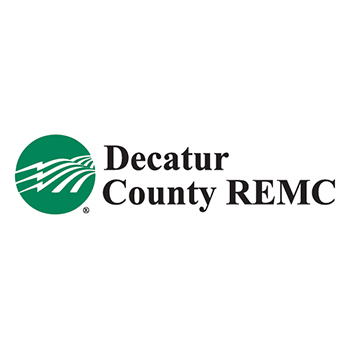- Chairman Tom Crowe called the May 21, 2018, meeting to order at 6:30pm, and Jason Barnhorst kept minutes of the meeting.
- All members of the board were present. Also present were DCREMC CEO Brett Abplanalp, DCREMC Accounting Manager Karen Forshee, and Heath Norrick of Hoosier Energy.
- Upon motion by Roy Friedersdorf, seconded by Lawrence Young, and carried, the agenda of the meeting was approved by unanimous vote.
- Heath Norrick of Hoosier Energy explained the “My Solar” program being offered by Hoosier Energy to all 18 of its member cooperatives. My Solar is a community solar initiative being driven by the desire of end consumers to have some of their energy generated by renewable resources. Hoosier Energy is offering two options to member cooperatives for sign up: 1.) A monthly fixed charge that would appear monthly on the members’ bill or, 2.) members may purchase a panel for $500/each and receive a monthly credit on their statement for the average output of each panel. Monthly output per panel will be averaged over Hoosier Energy’s entire service area and will include all 10 of their solar arrays currently in service. Hoosier Energy will also provide all advertising and marketing materials to cooperatives that decide to participate. A representative of Hoosier Energy will be present at the DCREMC annual meeting June 22 to talk with interested members.
- The financial report was given by Karen Forshee and reviewed on Call to Order.
- Forshee reported that the latest estimate (LE) for controllable expenses has increased by almost $45,000 and is solely related to increased labor costs. However, the LE for total margins has improved and are expected to be well ahead of budget.
- Prime Group is currently updating the Cost of Service Study (COSS) to include the new medium commercial rate class. The updated report will be ready for review by the board in June. However, for the COSS to be complete, Prime Group needs a target return on rate base (ROR) for the entire system. Upon motion by Dan Schantz, seconded by Lawrence Young, and carried, the ROR goal will be set at 4.75 percent for the entire system, passed by unanimous vote.
- The board also asked that the final COSS report include an explanation of the numbers behind rate base by class, an outline of the assumptions used in the study, and how the allocation factors were developed.
- Upon motion by Steve Gasper, seconded by Steve AmRhein, and carried, the power tracker for the third quarter of 2018 was set as follows:
- For rates SP, SC, LP, LCP, ETS, SL, and STL – $0.008229/kWh
- For rates IPS, IPS-1-2, and IPS-1-3 – $0.007179/kWh
- For rates IPTS-138/161 kV – $0.000531/ kWh
- For rates SP-DG and SP-TOU-DG – ($0.007769)/kWh
- Motion carried by unanimous vote.
- Upon motion made by Jason Barnhorst, seconded by Lawrence Young, and carried, the consent agenda of the meeting was approved as amended by unanimous vote.
- Brett Abplanalp gave his CEO, safety, and outage reports as prepared on Call to Order. Abplanalp reviewed the recent Kaizen event held for the line extension and aid of construction project, discussed the upcoming annual meeting preparation, and updated the board on the upcoming strategic planning event that will be held in August for DCREMC employees and the board. Abplanalp also gave an overview of the top ten project list, highlighting the new safety program and manual that has been adopted and is awaiting union approval.
- Hoosier Energy report was given by Dan Schantz. He reported that Hoosier is experiencing a lot of turnover due to retirements in management and its board of directors. However, the search for a new CEO is on track. Hoosier was also able to maintain its “A” credit rating by Standard and Poor’s with strong financials. Schantz also attended a presentation by the CEO of MISO (Midcontinent Independent System Operator), where he emphasized the acceleration of wind and solar production.
New Business:
- Upon motion by Jason Barnhorst, seconded by Lawrence Young, and carried, the voting delegate for the NCSC annual meeting will be Steve AmRhein, motion carried by unanimous vote.
- Upon motion by Steve Gasper, seconded by Jeff Lawrence, and carried, the bad debt write-offs for 2017 were approved by unanimous vote.
- Ablanalp presented survey data compiled by Indiana Electric Cooperatives (IEC). The report shows that DCREMC board of directors compensation falls within the first quartile, and below the median for the state.
- Recently, materials have been distributed outlining areas of concern by a few members. In response, a written statement has been prepared by DCREMC and approved by DCREMC board of directors by a vote of 7 – 1, the dissenting vote was cast by Jeff Lawrence.
The four items of concern and each response is outlined below:
1. Controlling cost is the mindset change that must happen within the DCREMC
Our mission statement states “affordable service.” Our employees, CEO and the board of directors are committed to strengthening our culture of controlling cost. In 2017, our board of directors hired a CEO with experience in continuous improvement (CI) and savings projects year over year. Our employees participate in a continuous improvement savings program designed to remove barriers and give recognition for savings projects. We cut controllable expenses by 2.6 percent from the 2018 budget. Management has, and will, continue to complete an annual savings brainstorming activity. This activity provides a bank of potential savings projects. Each year, the higher priority projects will be taken through feasibility and possibly become part of our budget plan and an active project for the future. Our culture is to never become complacent on our spending, and to continue to look for savings opportunities.
2. Directors need systems in place to verify how members’ money is being spent prior to spending
Our policy, just like other companies, dictates that our annual budget be reviewed and approved by our board of directors yearly. Throughout the year, the board of directors have oversight to the budget at our monthly board meetings. We continuously look for improvements in our financial tracking mechanisms. Last year, we implemented a new look at our budget tracking that compares to a yearly latest estimate (LE).
3. The cost of service study (COSS) is the tool used to determine and set rates. In 2014, only one director read the COSS; in 2018, our CEO has refused to allow directors access to the COSS data
The COSS is a tool to set cost base rates. The COSS produces a return on rate base (ROR) for each class and for the entire REMC system. Rate base is the investments made to serve members of that class. This information helps management and the board of directors make decisions on rates. The ROR data is presented in a table format (spreadsheet). The CEO has an open-door policy where any member/owner or board director can ask questions at any time. In the Electric Consumer monthly magazine, “Brett’s Buzz” welcomes members to come in and chat anytime. At the conclusion of each cost of service study, conducted on behalf of Decatur County REMC by a third-party professional, each director participates in a review with our third-party professional to discuss the data, findings, and any recommendations going forward.
4. Develop electrical rates that are easily understood and are fair and equitable for all members
Cost-base rates get to the heart of being fair and equitable. Just like many things in life, fairness doesn’t equal easily understood. In fact, it’s often the opposite. The service fee on your bill is the fairest way to collect fixed costs (example: maintenance, billing, administrative costs). Collecting those costs as a hidden energy charge (kWh) would have some members paying more than others which isn’t fair. Collecting only energy costs through a kWh charge is the fairest and most equitable method.
- The annual CFC Forum will be held in Indianapolis June 10-13.
- DCREMC annual meeting will be June 22 at Decatur County Fairgrounds.
- Upon motion by Steve AmRhein, seconded by Dan Schantz, and carried, the meeting was adjourned at 10:40 p.m.


